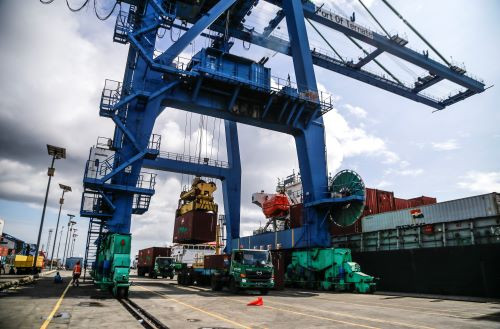Popular Reads
Top Results
Can't find what you're looking for?
View all search resultsPopular Reads
Top Results
Can't find what you're looking for?
View all search resultsSquatters moved from Kambas park
In a bid to curb deforestation, the Way Kambas National Park (TNWK) authority in Lampung is to remove squatters from the conservation park who have resided there for decades
Change text size
Gift Premium Articles
to Anyone

I
n a bid to curb deforestation, the Way Kambas National Park (TNWK) authority in Lampung is to remove squatters from the conservation park who have resided there for decades.
The head of the TNWK agency’s public relations division, Dede Mulyadi, said Monday there were four spots, namely Kuala Kambas, Sekapuk, Wako and Tanjungsekopong, that needed to be cleared off from thousands of dwellers.
The squatters are fishermen from South Sulawesi, who shelter in the forest during squalls, and have gone so far as to build makeshift camps using materials taken from the protected forest.
“We will force them to leave the areas by dismantling their huts,” Dede said.
He said the dwellers had agreed to vacate the areas by the end of this month following a meeting with their representatives.
Apart from the fact that the areas are not intended to be residential, according to Dede, the clearance is important for the authority to employ a measure of impartiality given that former dwellers had abandoned the area a year ago following the authority’s orders.
Those people are now residing in Labuhanratu, Rajabasalama Induk, Rantaujaya and Sukadana villages.
The dwellers, who own hundreds of buffalos have also been instructed to remove their animals from the 125,000-hectare park, which is home to protected rhinos, elephants and tigers.
Head of the TNWK Agency John Kenedie said the eviction was necessary across the 6,000-hectare illegally-occupied areas. Unless they were cleared, he said, more and more new people would move into the protected regions.
“We have to be stern because damage to the TNWK is getting worse and worse, with some 500 hectares of new land being illegally inhabited each year,” John said.
The destruction of elephant habitats, he added, had often forced the animals to attack the settlements and plantations of the villagers living around the forest.
Besides South Sulawesi, the dwellers have also come from South Sumatra, East Java, Central Java and West Java. “We are now evicting those from South Sulawesi and West Java. Those from Lampung were removed from the TNWK last year,” John said.
Many dwellers claimed they did not commit illegal logging or damage the forest. “We just erect shelters for us to rest in after fishing,” said Afandi, from South Sulawesi, adding that his group had altogether erected some 200 huts in the woods.
Prayitno, from Jember, East Java, who claimed to have resided in Kuala Kambas in the TNWK region since 1966, said they erected temporary huts to cut down sailing distances. “Otherwise, the fish we catch will be rotten before reaching the market,” he said.
Thanks to illegal logging and squatting in the TNWK, 60 percent the protected national park has reportedly been damaged, rendering most of the forest into plains of cogon grass.
Data at the TNWK Agency shows there have been 135 cases of illegal logging in the region in the past five years, involving 219 suspects. Each year the agency confiscates an average of 200 cubic meters of wood illegally logged from the TNWK.









